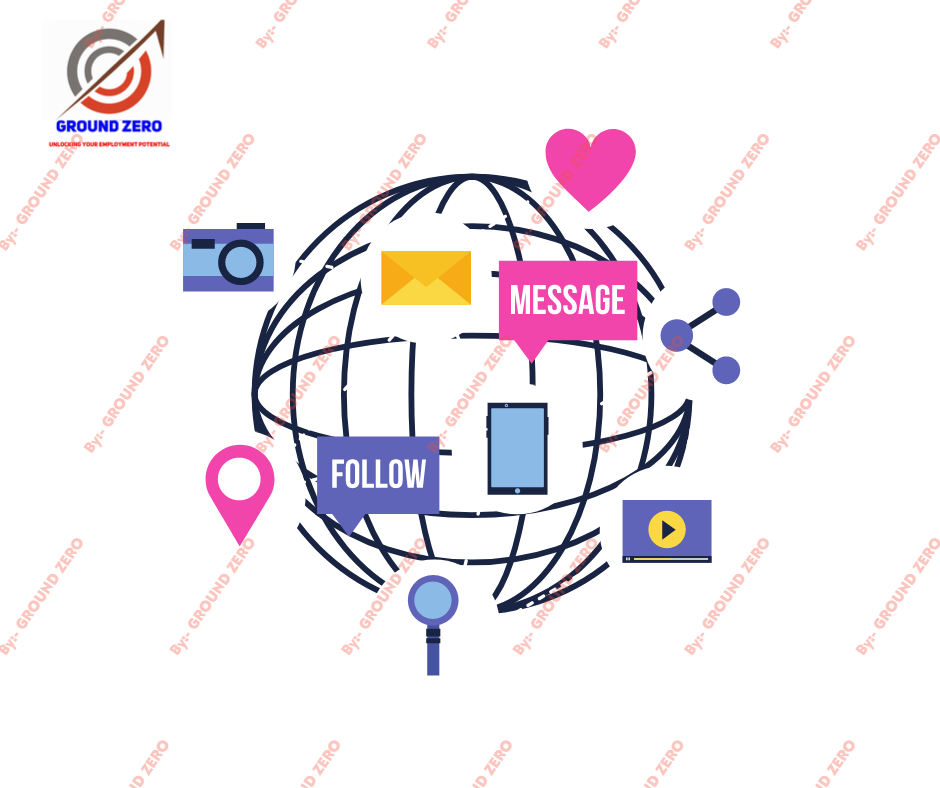In today’s digital age, social media has become an essential tool for businesses to connect with potential customers and promote their brands. However, it’s not just for marketing purposes – social media platforms can also be a powerful tool for effective recruitment. By leveraging social media, companies can reach a wider audience, connect with job seekers directly, and build a strong employer brand. In this blog post, we’ll discuss 10 solutions and recommendations for leveraging social media for effective recruitment.

1. Build a Strong Employer Brand:
Use social media platforms to showcase your company culture, values, and benefits. Share photos and videos of team-building activities, employee spotlights, and testimonials that highlight the unique aspects of your company’s work environment. For example, you could showcase team members participating in charity events or highlight the company’s commitment to sustainable practices.
2. Create Engaging Content:
Develop relevant and engaging content that resonates with your target audience. Share industry insights, thought leadership articles, and job openings in an engaging and informative way. For instance, you could create infographics or short videos that break down complex industry concepts or trends into easily understandable snippets.
3. Utilize Hashtags:
Research and use industry-specific hashtags to increase the visibility of your job postings. This will help your posts reach a more targeted audience. For example, you could use hashtags like #techjobs or #digitalmarketingcareers to attract candidates with the desired skills and expertise.
4. Engage with Candidates:
Respond to comments, messages, and inquiries from potential candidates on your social media platforms promptly and with a personalized touch. Engaging with candidates in a friendly and informative manner can help build a positive impression of your company’s culture and values. For instance, you could reply to candidate queries with detailed information about job requirements or direct them to the appropriate channels for further assistance.

5. Leverage LinkedIn:
Take advantage of LinkedIn’s professional networking capabilities. Utilize LinkedIn Recruiter to search for qualified candidates, join industry-related groups, and leverage your company page to post job openings. Engage with potential candidates by commenting on their posts, sharing relevant industry news, and participating in relevant discussions. This will help establish your company as a reputable and active player in the industry.
6. Showcase Employee Success Stories:
Highlight the achievements and successes of your employees on social media. Share stories of promotions, awards, or notable projects. This not only boosts employee morale but also provides potential candidates with valuable insights into career growth opportunities within your organization.
7. Partner with Influencers:
Collaborate with industry influencers and professionals who have a large following on social media. They can help amplify your job openings and reach a wider audience of potential candidates. For example, you could partner with a well-known tech blogger who can write a guest post promoting your job openings or collaborate on social media giveaways or live video sessions.
8. Utilize Video Content:
Create engaging and informative videos that provide an inside look into your company culture, work environment, and employee experiences. For example, you could create a “day in the life” video that showcases different roles within your organization or interview employees about their career journeys. Adding these videos to your social media channels will provide candidates with a more personal and authentic understanding of your company.

9. Run Targeted Ads:
Utilize social media advertising features to target specific demographics and locations. By narrowing down your target audience, you can ensure that your job postings are seen by the most relevant candidates. For instance, you can set preferences to show your ads only to individuals in certain locations or with specific skills or experience requirements.
10. Measure and Optimize:
Track the success of your social media recruitment efforts by monitoring metrics such as the number of applications received, engagement rates, and quality of hires. Use this data to continually refine and optimize your social media recruitment strategy. For example, if you notice that certain types of content or ads generate more engagement or lead to higher-quality hires, allocate more resources to those areas for better results.
In conclusion, leveraging social media for effective recruitment can provide numerous benefits for your organization. By building a strong employer brand, creating engaging content, utilizing hashtags, engaging with candidates, leveraging LinkedIn, showcasing employee success stories, partnering with influencers, utilizing video content, running targeted ads, and measuring and optimizing your social media recruitment efforts, you can attract and connect with top talent in your industry. Social media offers a powerful platform to showcase your company culture, reach a wider audience, and establish your organization as an industry leader. By utilizing these strategies, you can enhance your recruitment process and ultimately attract the best-fit candidates for your company’s success.

Challenges and Solutions in Social Media Recruitment:
While social media recruitment offers numerous advantages, it also comes with its set of challenges. It’s important to recognize these obstacles and have strategies in place to overcome them. Here are some common challenges and their corresponding solutions:
Information Overload: Social media platforms are flooded with information, and job postings can quickly get lost in the noise. This challenge requires a solution that focuses on standing out and targeting the right audience. Craft compelling headlines and content that grab attention, use relevant hashtags to increase discoverability, and leverage paid advertising to ensure your job postings reach the right candidates.
Candidate Quality: While social media can attract a broad range of candidates, it’s essential to ensure the quality of applicants. To address this, create clear job descriptions that outline qualifications and requirements. Implement an applicant tracking system (ATS) to screen candidates more efficiently and automate parts of the hiring process. Additionally, encourage employee referrals to bring in high-quality candidates with a better cultural fit.
Privacy and Legal Concerns: Social media recruitment involves accessing personal information about candidates, which raises privacy and legal concerns. Be sure to comply with data protection regulations and respect candidate privacy. Clearly communicate your data usage and protection policies and seek consent when necessary. Stay informed about evolving privacy laws and adapt your recruitment practices accordingly.
Competition: The popularity of social media recruitment means that you’re not the only one vying for top talent. To address this challenge, you can employ a proactive and persistent approach. Continuously engage with your social media community, build strong employer branding, and showcase your unique company culture to stand out from competitors.
Changing Algorithms: Social media platforms frequently update their algorithms, affecting the visibility of your content. To adapt, stay informed about algorithm changes and adjust your posting schedule and content accordingly. Engaging content, such as videos, live streams, and interactive posts, often receives favorable treatment by algorithms.
Negative Feedback: Occasionally, you may encounter negative feedback or criticism on social media platforms. Address these issues with professionalism and transparency. Respond to negative comments respectfully and take the opportunity to showcase your commitment to improving your organization.
In summary, social media recruitment presents its own set of challenges, but with strategic planning and adaptability, you can overcome them and make the most of the benefits it offers. By being aware of potential obstacles and implementing effective solutions, you can navigate the dynamic world of social media recruitment successfully and attract the right candidates for your organization.
Ethical Considerations in Social Media Recruitment
As organizations increasingly turn to social media for their recruitment efforts, it’s essential to be mindful of ethical considerations. The digital landscape presents unique challenges and potential pitfalls that require careful navigation to maintain fairness, transparency, and legality in your recruitment practices.
Fairness and Diversity: To promote fair and inclusive recruitment, it’s crucial to avoid any practices that may discriminate against candidates based on characteristics such as age, gender, race, religion, or disability. Algorithms used for candidate targeting should be reviewed for potential bias, and efforts should be made to reach a diverse audience. Strive to create job postings and content that are appealing to a wide range of candidates and that do not inadvertently exclude or discourage certain groups from applying.
Candidate Privacy: Respect the privacy of candidates during the recruitment process. Avoid scraping or collecting personal data without consent and adhere to data protection regulations. Be transparent about how candidate data will be used and protected. Seek explicit consent when sharing candidate information or using it for purposes other than recruitment.
Authenticity and Transparency: Maintain authenticity in your social media recruitment efforts. Job postings and employer branding should accurately represent the workplace and culture. Avoid embellishing or misrepresenting the organization to attract candidates. Transparency is key in every aspect of the process, from job descriptions to the selection criteria, to maintain trust with candidates.
Equal Opportunities: Ensure that all candidates have equal opportunities and access to job postings. Make your job listings accessible to individuals with disabilities, and consider accommodating candidates’ needs during the application process. Respond promptly to inquiries from candidates and provide reasonable accommodations when necessary.
Compliance with Regulations: Comply with local, national, and international labor laws and regulations. Be aware of specific legal requirements in your industry and location regarding job postings, application processes, and data handling. Keep up to date with changes in labor and recruitment laws and ensure that your practices remain compliant.
In conclusion, ethical considerations in social media recruitment are of paramount importance. Upholding fairness, transparency, privacy, and compliance with legal and regulatory standards is not only a moral imperative but also crucial for maintaining a positive employer brand and fostering trust among candidates and the broader social media community. It’s essential to integrate ethical principles into every aspect of your social media recruitment strategy to ensure it remains ethical and responsible.
Conclusion
In the dynamic and ever-evolving landscape of recruitment, social media has emerged as a powerful tool for organizations seeking to connect with top talent. Leveraging social media in your recruitment strategy is not merely a trend; it’s a necessity to stay competitive and innovative in your hiring efforts. This comprehensive exploration of social media recruitment has provided valuable insights into the benefits, challenges, and ethical considerations involved in the process.
By widening the talent pool, reducing recruitment costs, enhancing employer branding, and improving the candidate experience, social media presents numerous advantages. Selecting the right platforms, crafting compelling job postings, building and engaging with your social media community, and harnessing employee advocacy are essential steps in a successful strategy. Measuring and analyzing performance allows for data-driven adjustments, while real-world examples of successful recruitment on social media illustrate the potential and creativity in this field.
However, it is equally important to acknowledge the challenges and ethical considerations that come with social media recruitment. Navigating information overload, ensuring candidate quality, respecting privacy, handling competition, and staying ethical and transparent are all essential components of a responsible strategy.
As the world of work continues to evolve, the role of social media in recruitment will only become more prominent. Companies that adapt to these changes, embrace innovation, and uphold ethical standards will be best positioned to find the right candidates and create lasting relationships. The journey to leveraging social media in your recruitment strategy is a dynamic and ongoing process, one that promises to shape the future of how organizations connect with the talent they need to thrive in an increasingly digital world.
Discover more from Ground Zero
Subscribe to get the latest posts sent to your email.





